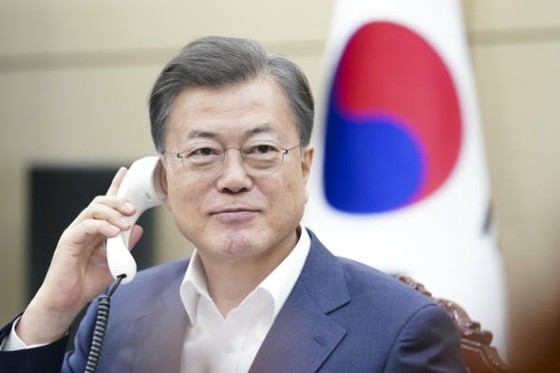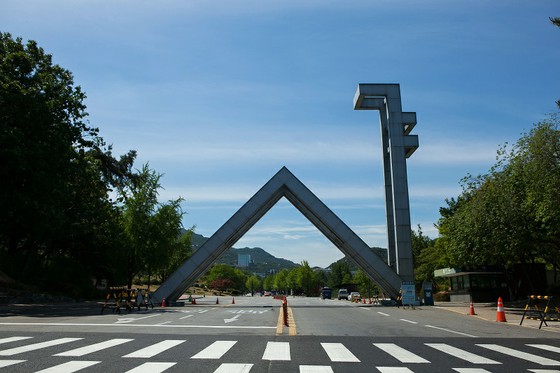  |
This year, 509,821 people are applying, an increase of 16,387 from last year. 1376 junior high and high schools nationwide will be the test venues. Continuing from last year, the test was conducted on COVID-19, but it was the first "Scholastic Ability" since the start of vaccination.
"Scholastic Ability" has been implemented since 1994 by the new university entrance examination system announced in 1991. It was held twice a year in the first year, but it will be held once a year from the following year.
It is no exaggeration to say that the scholastic ability of Korea has a great influence on the life after that in Korea, which has an educational background and is difficult to find a job. Most four-year universities, both national, public and private, require this exam. Universities judge pass/fail based on the grades of Scholastic Ability, internal report, and secondary examination, but Scholastic Ability occupies the largest weight.
The situation of taking the exam in Korea was also drawn on the TV Series. Broadcasted in South Korea from 2018 to 2019, "SKY Castle-Upper Class Wives-" is set in the high-class residential area "SKY Castle" where wealthy people live, and enrol children in the medical school at a famous university by all means. The figure of the parents trying to make them is drawn, and a high audience rating was recorded.
Although the work uses quite exaggerated expressions, it is possible to see the fierce examination situation in South Korea. In addition, "SKY" is used as the name of a high-class residential area in the work, but "SKY" is "S" of Seoul University, which is recognized as a prestigious university in Korea, and "S" of Korea University. "K" is an acronym for "Y" at Yonsei University.
On the day of the scholastic ability, a system will be taken to cooperate with the examinees throughout the country. Aircraft take off and landing are restricted to prevent noise, and subways and fixed-route buses may be increased in the early morning when many examinees use them.
The sight of police cars sending students who are likely to be late is reported every year in Japan. The reason why many examinees are late for important exams is that the examinees are informed of the exam venue the day before to prevent cheating.
In this way, while there is an atmosphere in which the people fully consider and cooperate with the examinees, the mysterious phenomenon that occurred over the mock exam of the Scholastic Ability in July this year made the media crowded. The Korean government wants students to prepare for their training with peace of mind, so priority vaccination with the COVID-19 vaccine will be given to active third-year high school students in July and to high school graduates in August.
For high school graduates, the application for the mock exam in September was a condition for receiving priority vaccination, and the number of high school graduates who applied for the mock exam increased by about 30,000 from last year. At that time, the Korean media reported that there might be "fake examinees" who aimed to receive preferential vaccination, but the Korean government denied this view.
Continuing from last year, the Scholastic Ability will be carried out during COVID, and various infection control measures have been taken this year as well. Every year, in front of the examination venue, you can see the juniors encouraging the seniors of the examinees with enthusiastic support, but the Ministry of Education (equivalent to the Ministry of Education, Culture, Sports, Science and Technology) called for refraining from doing so, as it did last year.
Ahead of the exam, from the 11th, all high schools nationwide switched to distance learning. In addition, the Ministry of Education classified the examinees into "general," "quarantine required," and "infection," and assigned examination venues. Infected examinees will take the examination at the hospital or medical treatment facility designated by the department. While it was mandatory to wear a mask during the exam, the desk acrylic divider, which was often dissatisfied by students last year as an inconvenience when solving problems, was installed only during lunch time.
However, South Korea's epidemic prevention system, which was proud of being "K-quarantine prevention," is beginning to collapse. On the 18th day since the start of "With Corona" in South Korea, the number of seriously ill patients has exceeded 500. The number of seriously ill patients, which the Korean government has declared that the current medical system can handle, is this "500".
Although the corona vaccine inoculation rate is almost the same as in Japan, the number of patients and seriously injured people continues to increase. Bed occupancy rates at hospitals dedicated to critically ill patients in Seoul exceeded 80%. There is also an analysis that the temperature control (cold chain) of the vaccine distribution failed, and that the cause was that the inoculation interval was set when the vaccine was in short supply.
Although it is not clear about the causal relationship between side reactions and death reports after vaccination, the number of reports alone far exceeds that of Japan. There is also a story that he could not take the test due to a side reaction even though he was inoculated for the test.
“Health management has also become an important factor in determining the results of university entrance exams” said the Korean newspaper Edaily. Certainly, the principle of taking an examination in the Corona era may have changed from the era of "working hard at studying" to the era of "working hard at health management."
2021/11/24 21:10 KST


